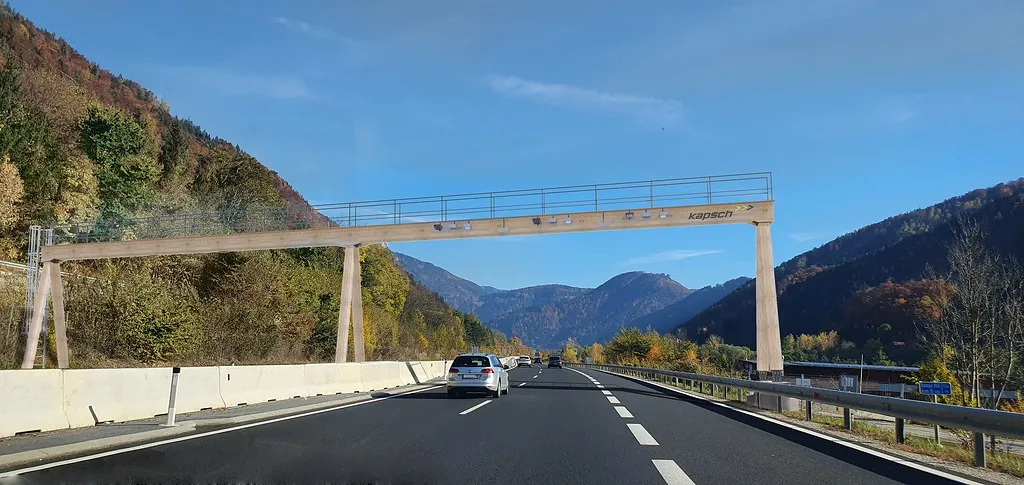
Kapsch TrafficCom has put a new spin on a familiar piece of steel and aluminium infrastructure: the motorway gantry.
The company's Green Gantry is made from wood but can still support signs, sensors and so on, and has a modular design.
Kapsch says this "allows an installation comparable to standard steel bridges and also with the same service life and maintenance intensity".
Each steel gantry creates over 30 tons of CO2 during its production, the company says - but the wood version "binds more than 20 tons of CO2 and thus has a positive carbon footprint" and "paves the way for sustainable road infrastructure".
Guaranteed for 20 years, the project is funded by the Waldfonds, an initiative of the Austrian Federal Ministry of Agriculture, Forestry, Regions and Water Management and is carried out as part of the Think.Wood programme of the Austrian Wood initiative.
Kapsch says the product is protected from water, ice and snow and, even after it is dismantled, "does not pollute the environment, as no harmful chemical substances are used to treat the wood".
Katharina Rynesch, innovation manager at Kapsch TrafficCom, says the design complies with all relevant European standards.
"Our road infrastructure is currently a blind spot in efforts to make the transport sector more sustainable," she explains.
"With our Green Gantry, we hope on the one hand to contribute to greater sustainability, but on the other hand also to demonstrate that even concepts that have been established for many years can be rethought and made sustainable."










